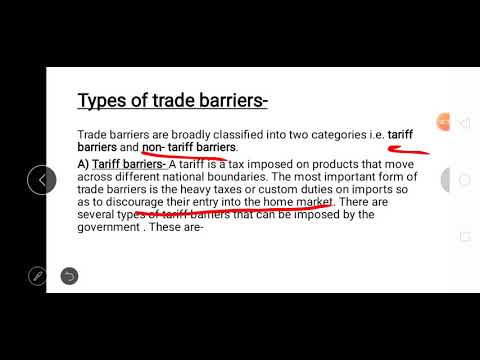Payroll Tax vs Income Tax: What’s the Difference Between Them?
Contents:


Put simply, payroll taxes are taxes paid on the wages and salaries of employees. These taxes are used to finance social insurance programs, such as Social Security and Medicare. Payroll taxes specifically refer to the taxes used to fund Social Security and Medicare.
Employer share of payroll or employer payroll taxes has to be paid by you, the employer, at regular intervals. As soon as a company hires a new employee, the person will be asked to fill out the W-4 form. This is done so the employer can withhold the right federal income tax from their salary. Similarly, the employees need to fill out another form to withhold the state income tax, depending on the regulations followed by the state. Medicare tax is at 2.9% and is equally divided between the employee and employer (at a rate of 1.45% each). Unlike the social security tax, this one does not depend on any wage base.
Principles of Sound Tax Policy
Reimbursing quickbooks payrolls – State and federal subject employers must reimburse the state for benefits paid to former employees. The money used to pay Oregon unemployment insurance benefits comes from Oregon employers. Inserting employees in the list of independent contractors to avoid paying FUTA and FICA taxes is illegal.
Employers generally must withhold federal income tax from employees’ wages. While there are some set calculations, like FICA tax estimations based on total taxable wages paid to your employee pool, payroll taxes also contain a few wildcards. As mentioned above, employees see multiple types of payroll taxes deducted from their wages.

As of 2021, the FUTA tax rate is 6% of the first USD $7,000 paid to each employee every year. Both the employer and the employee are responsible for paying Social Security payroll taxes. For Social Security taxes, employers pay 6.2 percent of each employees’ wages, and employees must match that same 6.2 percent. As you can see, the employer’s portion for the social security tax and the regular Medicare tax is the same amount that you’re required to withhold from your employees’ wages. (Different rules apply for employees who receive tips.) There is no employer portion for the 0.9 percent additional Medicare tax on high-earning employees. Are the federal and state income taxes withheld from employee paychecks a payroll tax expense for the employer?
The https://1investing.in/ Unemployment Tax Act requires employers to pay this tax. The employer is also required to file IRS Form 940, Employer’s Annual Federal Unemployment Tax Return. The employer’s share of Medicare taxes is recorded as an expense and as an additional current liability until the amounts are remitted. The employer’s share of Social Security taxes is recorded as an expense and as an additional current liability until the amounts are remitted. Taxes directed to the Social Security program were created by the Federal Insurance Contributions Act and are levied equally on employers and employees on all wages up to a certain level.
How do payroll taxes work?
Below is an example of variation of state payroll tax rates. Even if your state does not have payroll taxes, be sure to check the residence of your off-site employees. If they reside in states that do have payroll taxes, you will need to pay them. Many states have their own payroll taxes which contribute to state infrastructure and unemployment. One of the key differences between income and payroll taxes is how they are determined.
However, once you are obligated to begin withholding the Medicare surtax, you continue to withhold it each pay period until the end of the calendar year. The employer’s and employee’s obligations with respect to the Medicare surtax are different. In some cases, there may be a “mismatch” between the amounts you are obligated to withhold and the amount of your employee’s surtax liability. The law also requires the employer to pay an employer’s portion of Social Security and Medicare taxes. A partnership with BBSI can help your business achieve accurate payroll management and compliance with applicable laws. Our proprietary payroll portal, myBBSI, provides user-friendly dashboards while integrating with widely used payroll software, such as TimeCo.
What Are Payroll Taxes?
With all the requirements of each of these taxes , it will actually keep you on track and likely soften any missteps you might have at the end of the year. Though if you’re working in California, be sure you’ve classified your workers correctly before you file anything. This is all abstract, so let’s break this down in an actual tax situation you may find yourself in as an employer. Regressive follows a flat rate regardless of your income, while progressive adjusts according to your income.
What Is SUTA Tax? Everything You Need To Know – Forbes
What Is SUTA Tax? Everything You Need To Know.
Posted: Thu, 23 Feb 2023 08:00:00 GMT [source]
Valuepoint incurred payroll tax expense on White for FICA tax. The company also paid state unemployment tax and federal unemployment tax. Which of the following payroll taxes are usually filled and remitted annually? You can apply for an offer in compromise to settle your payroll taxes for less than you owe. But if the unpaid payroll taxes include trust fund taxes, the IRS will only approve your offer if the remaining portion of the trust fund taxes is paid by one of the other responsible parties.
Besides working with a payroll service, you can work with a tax professional. You can also talk with an accountant about completing payroll taxes, although they may refer you to a payroll service. According to the Society for Human Resource Management, the taxable wage cap for Social Security is typically raised each year based on increases in the national average wage. In 2021, the maximum earnings subject to the Social Security payroll tax is increasing by $5,100, to a total of $142,800. This article is for small business owners looking for more details on payroll taxes and how they apply to them. At Deel, our employment calculator streamlines global hiring by offering a comprehensive and inclusive payroll service.
Medicare tax
They are applied to the employee’s work situation and not the employer. White recorded total depreciation of$19,000 on the equipment. On January 1, 2018, White traded in the equipment for new equipment, paying $23,200 cash. The IRS also assesses interest on your unpaid balance. Protest Unemployment Insurance benefit charges or rates. At Wrapbook, we pride ourselves on providing outstanding free resources to producers and their crews, but this post is for informational purposes only as of the date above.
Read on to find out the answer to Which payroll taxes are the employee’s responsibility? And check out a handy chart that breaks down the different employee payroll taxes. The amount of payroll taxes recorded as an expense by the employer, which must be remitted to the applicable governments. Trevor, your employee, received $170,000 in wages from you through November 30, 2022. Prior to December 1, you were not required to withhold the Medicare tax surcharge. On December 1, you are required to withhold Additional Medicare Tax on $20,000 of the $50,000 bonus.
Business Case Studies
Unlike Social Security tax, Medicare tax does not have a wage base. However, once an employee reaches a certain amount of wages, you must withhold additional Medicare tax from their pay. You do not pay anything toward additional Medicare tax. Medicare tax is 2.9% and is split by you and your employee.

Consider either partnering with a payroll service or working with a tax professional to protect your business from the IRS. While it’s possible to complete payroll taxes on your own, it can be complicated, especially when it comes to keeping track of payments and withholding the right amount of money. Payroll taxes are withheld from each employees’ paycheck to fund Social Security and Medicare.

On August 10, Swanson Company recorded sales of merchandise inventory on account, $4,000. On September 30, Swanson paid $500 of sales tax to the state. Journalize the transaction to record the sale on August 10. Since 2013, the Additional Medicare Tax of 0.9 percent when the employee earns over $200,000.
- The account balance will be reduced and Worker Compensation Insurance Expense will increase as the employees work.
- FICA and unemployment taxes are examples of [] (employee/employer) taxes.
- Probably not, and when you are a business owner, they are just one more responsibility to add to your ever-growing list.
- Both employers and employees have to pay an equivalent share of Social Security and Medicare taxes.
- It only takes a few seconds to complete the required fields, receive a custom quote, and start your free trial.
There is no employer match for the Additional Medicare Tax. An employer generally must withhold social security and Medicare taxes from employees’ wages and pay the employer share of these taxes. Unemployment tax rates are assigned in accordance with Oregon law.
